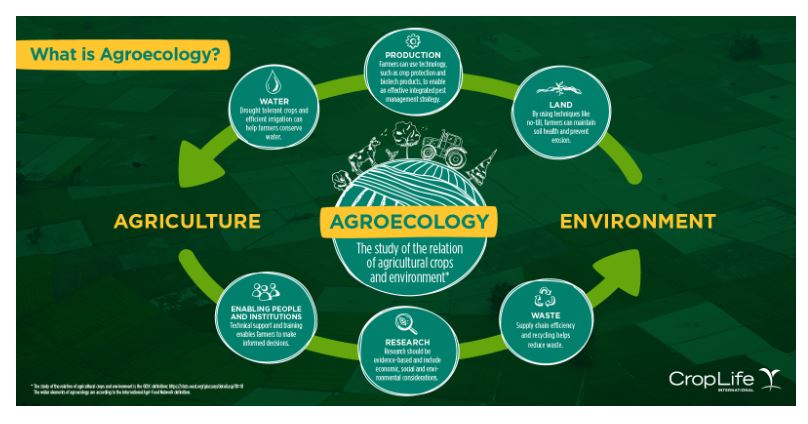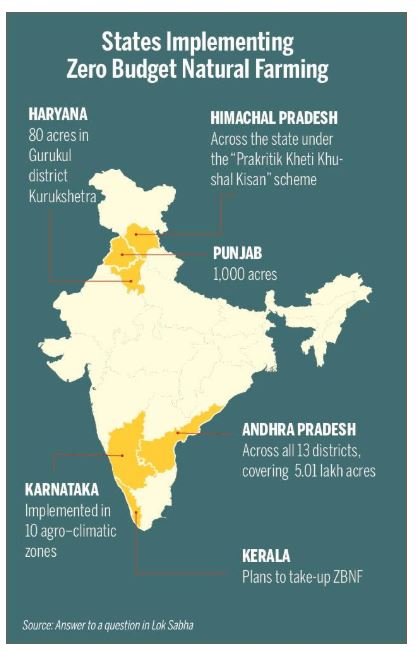IASbaba's Daily Current Affairs Analysis
IAS UPSC Prelims and Mains Exam – 25th September 2019
Archives
(PRELIMS + MAINS FOCUS)
Dadasaheb Phalke Award
Part of: GS Prelims
In News
- The country’s highest film honour, the DadasahebPhalke award, will be presented this year to Amitabh Bachchan
- The award comes in the year that marks Mr. Bachchan’s golden jubilee in cinema, who made his debut in 1969
- DadasahebPhalke (1870–1944), was an Indian film-maker who directed India’s first full-length feature film, Raja Harishchandra (1913). He is regarded as “the father of Indian cinema.”
- Dadasaheb Phalke awardis given to people for their “outstanding contribution to the growth and development of Indian cinema”.
- It is presented annually at the National Film Awards ceremony by the Directorate of Film Festivals (an organisation set up by the Ministry of Information and Broadcasting).
- The award prize consists of a golden lotus, a cash prize of ₹10 lakh and a shawl.
- The award was first presented in 1969. The first recipient of the award was actress Devika Rani, “the first lady of Indian cinema.”
SASTRA Ramanujan prize
Part of: GS Prelims
In News
- The SASTRA Ramanujan prize for 2019 will be awarded to mathematician Adam Harper, Assistant Professor with the University of Warwick, England.
- The prize was instituted in 2005 and is conferred annually on mathematicians from across the world who are less than 32 years of age, working in an area influenced by the genius Srinivasa Ramanujan.
- This prize is awarded by SASTRA University on its campus near Kumbakonam in Tamil Nadu, on Ramanujan’s birth anniversary, December 22.
- The prize carries a citation and an award of $10,000
- Previous winners of Ramanuja award, including Manjul Bhargava and AkshayVenkatesh, went on to win the Fields Medal (considered as mathematician’s Nobel Prize)
- The Fields Medal is a prize awarded to 2-4 mathematicians under 40 years of age at the International Congress of the International Mathematical Union (IMU), a meeting that takes place every four years.
Gandhi Solar Park
Part of: GS Prelims and Mains GS-II –International affairs
In News
- PMModi along with others world leaders inaugurated the Gandhi Solar Park at the UN headquarters on the occasion of Gandhi’s 150th birth anniversary.
- The 50 kWh roof-top solar park having 195 solar panels—each representing a member of the multilateral body – was built by India at a cost of US $1 million
- The leaders also launched a UN postage stamp of Mahatma Gandhi, at the programme ‘Relevance of Mahatma Gandhi in the Contemporary World’ at the UN headquarters.
Do you know?
- India is the third largest emitter of greenhouse gases, after China and the US.
- Coal power, cattle and paddy are major sources of emission, though per capita emissions (1.8 tonnes of CO2) are roughly a seventh of the US and less than half the world average (4.2 tonnes of CO2)
- India has pledged for a 33-35% reduction in emission intensity (emissions associated with each unit of economic output) by 2030, compared to 2005 levels.
- India has set the target of installing 175 GW of renewable energy by the year 2022, which includes 100 GW from solar, 60 from wind and the rest from small hydro, etc.
UMMID
Part of: GS Prelims and Mains GS-II – Health
In News
- In India’s urban areas, congenital malformations and genetic disorders are the third most common cause of mortality in newborns.
- Union government has launched UMMID (Unique Methods of Management and treatment of Inherited Disorders) initiative to tackle inherited genetic diseases of newborn babies.
- The initiative aims at creating awareness about genetic disorders amongst clinicians and establish molecular diagnostics in hospitals so that the benefits of developments in medical genetics could reach patients
- UMMID initiative involves
- to establish NIDAN((National Inherited Diseases Administration) Kendras to provide counselling, prenatal testing and diagnosis, management, and multidisciplinary care in Government Hospitals
- to produce skilled clinicians in Human Genetics, and
- to undertake screening of pregnant women and new born babies for inherited genetic diseases in hospitals at aspirational districts.
- The program implemented (by Department of Biotechnology) at government hospitals will benefit people who cannot afford expensive care for genetic disorders
(MAINS FOCUS)
INTERNATIONAL RELATIONS
TOPIC: General Studies 2:
- India and its neighbourhood- relations.
- Bilateral, regional and global groupings and agreements involving India and/or affecting India’s interests
US- TALIBAN PEACE TALKS

Image :https://geopoliticalfutures.com/wp-content/uploads/2019/07/WG_Afghanistan-talks-2019.jpg
Context:
- US President Donald Trump recently said that the talks with the Taliban aimed at ending the 18-year war in Afghanistan are “dead”.
Background:
- The Taliban refer to themselves as the Islamic Emirate of Afghanistan (IEA), are a Sunni Islamic fundamentalist political movement and military organization in Afghanistan currently waging war (an insurgency, or jihad) within that country.
- From 1996 to 2001, the Taliban held power over roughly three quarters of Afghanistan, and enforced there a strict interpretation of Sharia, or Islamic law.
- It held control of most of the country until being overthrown after the American-led invasion of Afghanistan in December 2001 following the September 11 attacks.
- The Taliban have been condemned internationally for the harsh enforcement of their interpretation of Islamic Sharia law, which has resulted in the brutal treatment of many Afghans, especially women.
- According to the United Nations, the Taliban and their allies were responsible for 76% of Afghan civilian casualties
- The Pakistani Inter-Services Intelligence and military are widely alleged by the international community and the Afghan government to have provided support to the Taliban
Implications after the talk ended:
- The Taliban has started carrying out major attacks with the American troops fighting back.
- Mr. Ghani has a chance to continue as President without having to share power with the Taliban(Which would have happened if the deal were successful )
- The Ghani government will be pleased with the fact that U.S. troops are likely to continue in the country, for if left alone the government will not survive long.
- Even with a properly negotiated deal, the ascent of the Taliban in Afghanistan would have meant a certain amount of regional uncertainty and geopolitical recalibration.
- Now that there is no deal between the Taliban and the U.S., there is likely to be more violence internally within Afghanistan while the external implications would be more or less contained.
What it meant for India:
- Pakistan, has been counting on the return of the Taliban in Afghanistan which it deeply believes gives it strategic depth vis-à-vis India.
- A non-negotiated withdrawal of U.S. forces would be the worst-case scenario for India .It will enhance Pakistan’s ability to control elements of the Taliban for tactical or strategic anti-Indian uses.
- Once the Taliban returns to power in Afghanistan, on its own or as part of a power-sharing arrangement, Indian civilian assets and interests in Afghanistan could come under increased pressure.
- Kashmir in many ways will continue to be at the centre of how the emerging geopolitical situation in Afghanistan will impact India.(1980s unemployed Afghan fighters turned up in Kashmir at the behest of the Pakistani agencies)
- The breakdown of the Trump-Taliban talks is advantage India since the negotiation would have led to negative consequences for India.
Did you know:
“If a superpower like the U.S. can be pushed out of Afghanistan by the Taliban with help from Pakistan, would it be too difficult to beat India?” is the argument doing the rounds among sections of aggrieved Kashmiri youth.
Way forward:
- The U.S. and the international community, while picking up the threads of negotiations in the days ahead, will need to ensure that there are enough guarantees built into a deal to disincentivise undesirable external behaviour by the Taliban.
- India, on its part, needs to reach out to the Taliban, not to recognise it but to engage with it, in its own national interest. such an outreach will need to be carefully calibrated and discreetly executed without making the incumbent govt unhappy.
Conclusion:
It is perhaps for the best that the U.S.-Taliban talks were called off . It would have led to a slew of significant geopolitical changes with implications for the region and beyond.
Connecting the dots:
What implications does the cancellation of U.S.-Afghan talks have for the volatile South Asian region in general and for India in particular?
AGRICULTURE
TOPIC:General Studies 3:
- Major crops cropping patterns in various parts of the country, different types of irrigation and irrigation systems storage, transport and marketing of agricultural produce and issues and related constraints
Zero Budget Natural Farming (ZBNF)
Context:
National Academy of Agricultural Sciences, based on a brainstorming session that included industry representatives, sent a letter to Prime Minister Narendra Modi opposing Zero Budget Natural Farming (ZBNF). (one of the Agroecosystem)
Agroecology:
- Agroecology is the study of ecological processes applied to agricultural production systems.
- Agroecologists study a variety of agroecosystems recognised worldwide. The field of agroecology is not associated with any one particular method of farming. However, it has much more in common with organic and integrated farming
Agroecology impacts:
- enhances fertile landscapes,
- increases yields,
- restores soil health and biodiversity,
- promotes climate resilience and
- Improves farmers’ well-being.
Its practices are supported by many agricultural scientists, the Food and Agriculture Organization, the Intergovernmental Panel on Climate Change (IPCC), farmers’ groups and several NGOs

Img : https://croplife.org/wp-content/uploads/2018/04/CropLife-PSP-Infographic_1_v2.png
Did you know:
- ZBNF, developed and publicised by agro-scientist Subhash Palekar, has been adopted by Andhra Pradesh.
- Zero Budget Natural Farming (ZBNF) is a set of farming methods, and also a grassroots peasant movement, which has spread to various states in India. It has attained wide success in southern India.
- Zero Budget Natural Farming (ZBNF) is a farming practice that believes in natural growth of crops without adding any fertilizers and pesticides or any other foriegn elements.
- The word Zero Budget refers to the zero net cost of production of all crops (inter crops, border crops, multi crops).
- The inputs used for seed treatments and other inocluations are locally available in the form of cowdung and cow urine.
A ZBNF practicisng farmer has lower cost of inputs and thus has better capacity to increase the incomes. At the same time, ZBNF crops helps in retaining soil fertiliting and is climate change resilient.

Image : https://timesofindia.indiatimes.com/img/70463084/Master.jpg
Agroecology as a substantial threat to the Powerful lobbies’ influence on farming systems . Why?
- Farming in India and across the world is largely under the control of powerful lobbies with vested interests and connections to deep pockets. These include fossil fuel, fertilizer and seed companies as well as scientists with funding connections to agribusiness
- We in India presently have a subsidy-based agricultural system where farm inputs are firmly in the hands of corporations and their elite networks.
- large-scale transitions to agroecology will be a substantial threat to their influence on farming system
For instance:
- In Britain, when public hearings were held in the early 2000s to discuss genetically modified (GM) crops, corporations threatened to pull grants from scientists on the committees if they voted against GM
- When individual scientists in Europe and the University of California published articles describing how GM foods and crops affected the health of human beings and insects adversely, they were personally attacked and vilified
The current battle on ZBNF is between those powerfully entrenched and new voices of state and civil society.
Did you know:
- As a result of industrial farming, friendly insects are no longer part of the agricultural landscape, water pollution is rampant, depleted soils are commonplace and plunging groundwater tables have become the norm.
Conclusion:
- Agroecology-based farming is not regressive, but rather a technology of the future with a traditional idiom.
- If policymakers ignore the posturing and stay focussed on improving soil health and quality of life for farmers, while observing and supporting successes, farmers may even double their incomes and India’s food security could sow new beginnings.
(TEST YOUR KNOWLEDGE)
Model questions: (You can now post your answers in comment section)
Note:
- Featured Comments and comments Up-voted by IASbaba are the “correct answers”.
- IASbaba App users – Team IASbaba will provide correct answers in comment section. Kindly refer to it and update your answers.
Q.1)UMMID initiative is being implemented by which Union Ministry?
- Ministry of Health & Family Welfare
- Ministry of Minority affairs
- Ministry of Science & Technology
- None of the above
Q.2)Consider the following statements
- Dadasaheb Phalke award is given to people for their outstanding contribution to the growth and development of Indian cinema.
- The award first presented in 1951 is presented annually at the National Film Awards ceremony by the Directorate of Film Festivals
Which of the statement(s) given above is/are correct?
- 1 only
- 2 only
- Both 1 and 2
- Neither 1 nor 2
Q.3)Consider the following statements
- India is the third largest emitter of greenhouse gases, after China and the US.
- India’s per capita emission is double that of World’s average
- India has pledged for a 33-35% reduction in emission intensity by 2030, compared to 2005 levels
Which of the statement(s) given above is/are correct?
- 1 and 2 only
- 2 and 3 only
- 1 and 3 only
- 1,2 and 3
Q.4)Consider the following statements about Shastra Ramanuja Prize
- The prize was instituted in 2005 and is conferred annually on mathematicians from across the world who are less than 32 years of age,working in an area influenced by the genius Srinivasa Ramanujan.
- This prize is awarded by Indian Statistical Institute on Ramanujan’s birth anniversary, December 22.
- Previous winners of Ramanuja award, including Manjul Bhargava and AkshayVenkatesh, went on to win the Fields Medal
Which of the statement(s) given above is/are correct?
- 1 and 2 only
- 2and 3 only
- 1 and 3 only
- 1,2 and 3
MUST READ
Balakot Redux: On Bipin Rawat’s revelation of terrorist camp
Making the grand Indian PSB mergers work
Bank mergers don’t address crux of crisis
Market participation via innovative product pricing is needed
Oneness fixation: The idea of an all-encompassing smart card is outdated and unworkable















